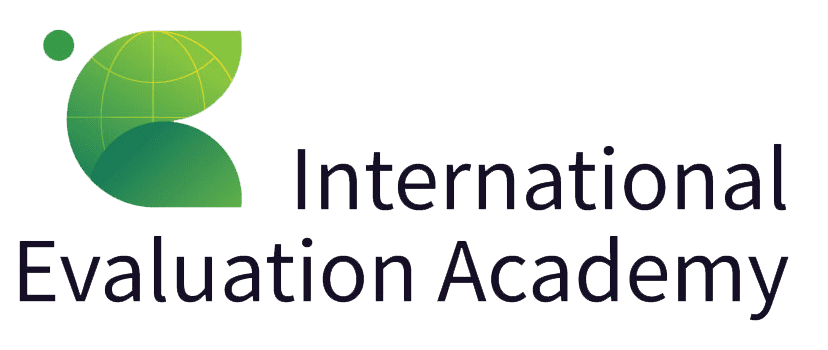Founding Friends of the Academy
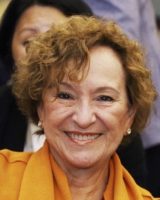
Council Chair
International Independent Evaluator
Cristina Magro is a Brazilian evaluator. She has PhD in Language Sciences, is an IPDET graduate and is certified in Institutional Assessment by the Brazilian Ministry of Education and Culture. For 26 years she worked as a full professor in the Brazilian University UFMG; she has been a visiting scholar, researcher and associate professor at various academic institutions in Brazil and abroad, occupying academic and administrative posts. As a Senior Education Expert, Cristina worked under World Bank and UNICEF contracts in Timor-Leste, as an evaluator of school materials and para-didactic resources, and as an advisor for the Vice-Minister of Primary and Secondary Education and for the Minister of Education. She worked for the Brazilian government evaluating Universities and Faculties, and the Brazilian Ministry of Education’s Observatory of Education. She has served as the Secretary-General for IDEAS for two consecutive terms. As a member of the IEAc Council, she took part of the Transformations Working Group. She is a member of the editorial boards of RBAVAL (Brazilian Journal of Evaluation) and of the Asia Pacific Journal of Evaluation. She has edited, translated and authored several publications, either alone or with academic and professional partners.
The Academy has three classes of Friends. Those Friends who are involved in significant work of the Academy become Evaluation Scientists, and those leading significant areas of work become Evaluation Scientific Leaders.
Ada Ocampo
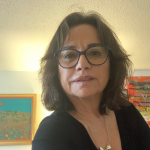
Peruvian sociologist, President of IDEAS – International Development Evaluation Association
Ada Ocampo is a Peruvian sociologist with a Master’s Degree, with distinction, in Development Planning and Management granted by the University of Wales, UK. She has worked in the United Nations System since 1990 with UNICEF, UNDP, UNFPA and IFAD in different countries of North and Latin America, Africa and Asia. During her career, she has been mainly involved in evaluation capacity development and networking. She has lectured at various universities including Carleton (Ottawa – Canada), FLACSO (Santiago, Chile), Indian School of Business (Hyderabad, India and BRAC (Dhaka, Bangladesh). She is the author of several articles and publications. She is passionate about Partnerships for Evaluation and Evaluation Capacity Development. She has co-chaired EVALSDGs for 5 years. She was one of the founders of the International Organization for Cooperation in Evaluation (IOCE) and of the Latin America Evaluation Network (ReLAC). Ada retired from Unicef in November 2020. She currently leads the International Development Evaluation Association (IDEAS).
Alexey Kuzmin
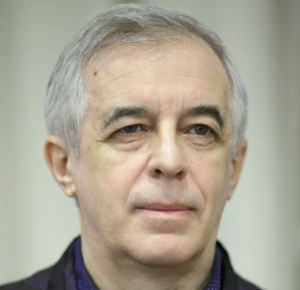
International Evaluation Consultant
Director, Process Consulting Company
Alexey Kuzmin is an international evaluation consultant and trainer based in Moscow, Russia. Since 1992 he is a co-founder and Director of the Process Consulting Company – a private consulting firm. With Master degree in engineering and psychology he started organization development consulting practice helping emerging businesses and NGOs in Russia become more effective. Since the late 90-s his professional focus has been primarily on program and project evaluations at the local, national and regional levels. His PhD specialization was Program Evaluation and Organization Development. He is a former President of the Russian Association of Specialists in Program and Policy Evaluation (RASPPE), a former Chair of the Eurasian Alliance of National Evaluation Associations, a former Chair of the International Committee of the American Evaluation Association.
Apollo M. Nkwake
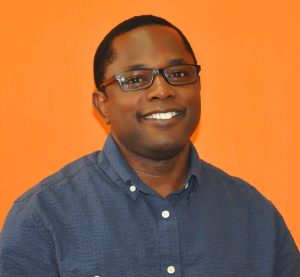
M&E Technical Advisor at Education Development Center
Apollo M. Nkwake is an M&E Technical Advisor at Education Development Center. He previously worked as Associate Research Professor for M&E at The George Washington and Tulane Universities. He holds a PhD in Social Development from University of Cape Town and holds Canadian Evaluation Society’s Credentialed Evaluator designation. Dr. Nkwake is a recipient of American Evaluation Association’s 2017 Marcia Guttentag Promising New Evaluator Award. He has authored six books, several journal papers/book chapters and guest edited several special journal volumes. He is the author of: Credibility, Validity, and Assumptions in Program Evaluation Methodology (English-2015 and French-2020, Polish, Dutch, Italian, Portuguese, German), and Working with Assumptions in International Development Program Evaluation (English-2013 & 2020 and French-2020, Polish, Dutch, Italian, Portuguese, German). Link to LinkedIn profile
Claudia Olavarría
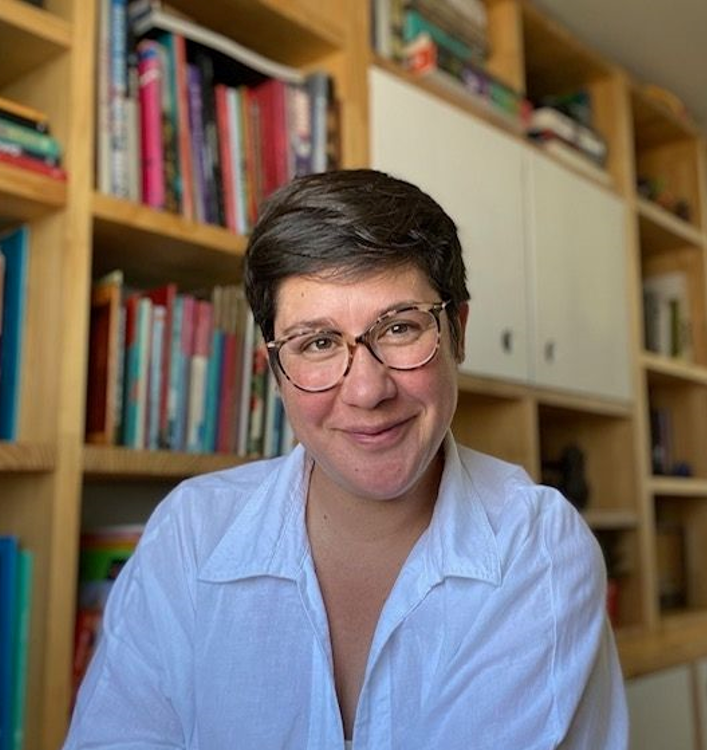
International Evaluation Facilitator
Claudia Olavarría is a Chilean sociologist and evaluator, specialized in gender, human rights and participatory approaches. She has 15 years of professional experience as a researcher and evaluator in the latinamerican region and abroad. During these years she has worked with international organizations, public sector institutions, non governmental organizations and private sector facilitating evaluation capacity development, evaluation practice and use.
She is an evaluation activist working to boost synergies among actors for promoting evaluation approaches and practices that leave no one behind and contribute to achieve social justice and sustainable development.
She has led several initiatives to promote the use of a gender and intersectional lense to evaluation, the inclusion of youth in evaluation as well as the use of participatory and community based approaches to evaluation, among others.
Currently she is the co-chair of the Latin American and the Caribbean chapter of EvalYouth, the coordinator of the Gender and Human Rights Thematic Interest Group from ReLAC and participates in the EvalGender+ Management Group.
Cristina Magro

International Independent Evaluator
Cristina Magro is a Brazilian evaluator. She has PhD in Language Sciences, is an IPDET graduate and is certified in Institutional Assessment by the Brazilian Ministry of Education and Culture. For 26 years she worked as a full professor in the Brazilian University UFMG; she has been a visiting scholar, researcher and associate professor at various academic institutions in Brazil and abroad, occupying academic and administrative posts. As a Senior Education Expert, Cristina worked under World Bank and UNICEF contracts in Timor-Leste, as an evaluator of school materials and para-didactic resources, and as an advisor for the Vice-Minister of Primary and Secondary Education and for the Minister of Education. She worked for the Brazilian government evaluating Universities and Faculties, and the Brazilian Ministry of Education’s Observatory of Education. She has served as the Secretary-General for IDEAS for two consecutive terms. As a member of the IEAc Council, she took part of the Transformations Working Group. She is a member of the editorial boards of RBAVAL (Brazilian Journal of Evaluation) and of the Asia Pacific Journal of Evaluation. She has edited, translated and authored several publications, either alone or with academic and professional partners.
Debazou Y. Yantio
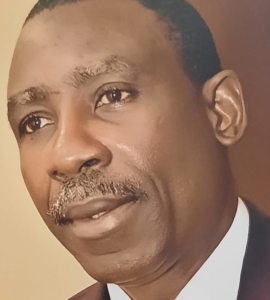
Founding member of CaDEA, former Board member of IDEAS, Member of AfrEA, AEA, and Honorary Member of CES. Has served in the Steering Committee of the NONIE Initiative.
Debazou Yantio is from Cameroon, based in Côte d’Ivoire at the Independent Development Evaluation Department of the African Development Bank. He is an agricultural economist specialized in policy analysis and development evaluation. He has conducted evaluation missions in 33 countries across Africa, Europe, Asia, North and South America, providing consulting services to various stakeholders: UN agencies (FAO, UNICEF, IFAD, ILO, UNFPA) and other international institutions, non-governmental organizations, private investors, local governments, and community organizations. He is founding member of the Cameroon Development Evaluation Association (CaDEA), former Board member of International Development Evaluation Association (IDEAS), member of American Evaluation Association (AEA), Honorary member of Canadian Evaluation Society (CES) and served in the Steering Committee of the Network of Networks on Impact Evaluation (NONIE). His current interest is in advocating to bridging evaluation and policymaking, impact evaluations, and building national evaluation capacities in Africa.
Doha Abdelhamid
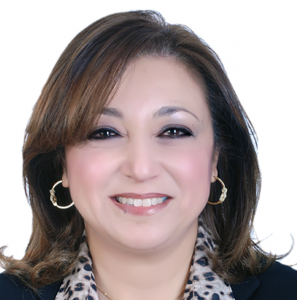
International Evaluator; Former BOD member, IDEAS and IOCE; and Former IPDET instructor
Doha Abdelhamid is an Egyptian national combining international consulting and academic experience. With a PhD in Financial Economics, she graduated and was an ECD instructor at IPDET, Carleton University, Canada. Transformative positions included: Senior Policy & International Relations Advisor to the Ministers of Finance; Economic Planning, Local Development; and Public Administration at the Cabinet of Ministers, where she was Director of portfolio reforms. First Director of the national ECD programme in performance-based budgeting/M&E for GOE. In addition, an Advisor to the Center of Parliamentary Research; VP of the Consumer Protection and Development Society; founding Evaluation Function Head at KAICIID, Austria, Advisor to the National Council for Women, and Visiting Research Associate, CLEAR AA-Witwatersrand University, SA. Doha is member of the Academy of Scientific Research & Technology, Egypt, and Independent Evaluations’ Reviewer, UNDP, NY. She is a researcher and innovator with long publications list; founding international editorial board member and referee of AEJ, among others. Doha offers lead transformative advisory services to a number of special profile institutions. Her interests are in innovative, practical evaluation policies, systems, institutional designs, approaches, and networks which improves people’s lives in meaningful ways.
Edward Jackson

Senior Research Fellow, Carleton University
Edward Jackson is a Canadian university professor and management consultant based in Ottawa. Dr. Jackson serves as Senior Research Fellow at Carleton University, Honorary Associate with the Institute of Development Studies, and President of E. T. Jackson and Associates Ltd. He specializes in evaluation, strategy and eco-system building in impact investing, blended finance, gender lens investing and ESG analysis in emerging markets, advising development agencies, foundations, and investment funds. He is co-founder of the International Program for Development Evaluation Training and a life member of the International Development Evaluation Association. An active multidisciplinary scholar, Dr. Jackson is a member of many academic and professional bodies and has lectured and published extensively on participatory evaluation, university engagement, theory of change in impact investing, and mainstreaming gender in development finance. Originally trained in adult education and community development, Ted Jackson holds the designation of certified responsible investment professional from the United National Principles for Responsible Investment and Canada’s Responsible Investment Association.
Gabriela Pérez-Yarahuan
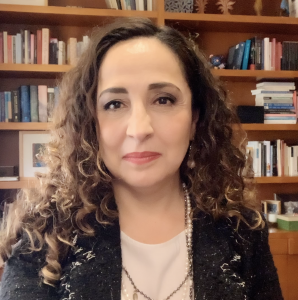
Director for the Centre for Learning on Evaluation and Results in Latin America and the Caribbean (CLEAR LAC) and Professor at CIDE, México
Gabriela Pérez Yarahuan is currently Director of CLEAR LAC (Centre for Learning on Evaluation and Results for Latin America and the Caribbean); she is also Professor at Centro de Investigación y Docencia Económicas (CIDE) in Mexico City. She has more than 15 years of experience in the practice, research and teaching of evaluation, working with national governments and international institutions. She worked in the Mexican government in different capacities: senior economic advisor in the Ministry of Social Development, policy advisor at the Ministry of Rural Development and Agriculture, and at Ministry of Education. She was also the head of the evaluation unit at CONEVAL (National Council for the Evaluation of Social Policy in Mexico) in 2007-2009. She holds a PhD and MPP in Public Policy from the University of Chicago and an MSc. in Economics from the University of Warwick. She has published several books and articles on National Evaluation Systems in LAC and on the use of evaluation.
Gerardo Sánchez
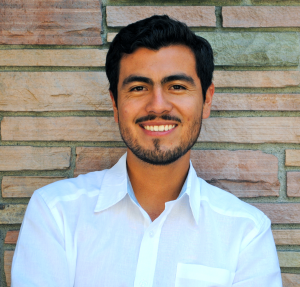
Director Mutua Social Research – Mexico, Co-Chair of EvalYouthLAC
Gerardo Sánchez-Romero is sociologist by the National Autonomous University (UNAM) in Mexico and master in applied cultural analysis by the University of Copenhagen in Denmark. He is evaluation consultant of projects related to inclusive development, poverty alleviation, education, public health, sustainability and human rights, and has more than eight years of experience working for governments and the public and private sector in Europe, Latin America and the USA. He is founder and director of Mutua S.C., an applied social sciences and management consulting firm based in Mexico. Mr. Sánchez-Romero is currently the co-chair of EvalYouth Latin America and the Caribbean, and former member of the Executive Committee of the National Academy of Evaluation of Mexico (ACEVAL), the voluntary organization of professional evaluation of Mexico.
Helen Simons

Professor Emeritus of Evaluation and Education, University of Southampton UK, former President of UKES and convener of Professionalization portfolio
Helen Simons is a New Zealander transplanted to the UK where her evaluation experience began leading to a PhD in democratic processes of evaluation. She has conducted independent evaluations of innovatory social programmes and policies, government and non-government funded, directed evaluation training in twenty five countries and for international organizations such as UNICEF. She has also played an active role in promoting the ethics of evaluation internationally. Her approach to evaluation embodies democratic and humanistic principles with a particular interest in using art forms to engage those traditionally marginalized to contribute to evaluation knowledge, enhance their autonomy, and realize social justice. She is a Fellow of the Academy of Learned Societies for the Social Sciences, UK and of the Royal Society of Arts. She is a founder member and former President of the UK Evaluation Society (UKES) and co-author of its Ethical Guidelines and Framework of Capabilities. She has published widely on qualitative methodology, case study evaluation and evaluation ethics.
Indran A. Naidoo
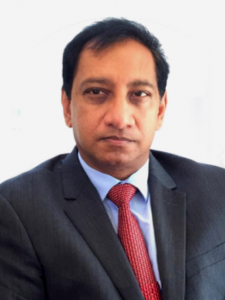
Director of the Independent Office of Evaluation at IFAD
Indran A. Naidoo is the Director of the Independent Office of Evaluation at IFAD. He brings vast global experience into the role having served as the Director of the Independent Evaluation (IEO) of the United Nations Development Program (UNDP), where he led the transformation and expansion of the office during his 8 year term. Fundamental transformation milestones included entrenching independence, establishing a budget target through a new evaluation policy, new polices, advancing staff professionalization, diversifying evaluation products, dedicated IEO website, and achieving five-fold expansion of coverage and evaluation efficiency. He also pursed innovative evaluations, advancing disciplinary boundaries with assessments of institutional effectiveness conducted with the UNDP Office of Audit and Investigations. The experience was presented and documented in several publications. Indran has placed emphasis on using evaluation processes as learning and reflective opportunities, and was able to achieve this within the construct of accountability. The National Evaluation Capacity (NEC) series grew under his leadership to become the largest United Nations evaluation capacity building event by country participation, offering training and forums for thought leadership with partners over the period, which saw major co-hosting with government and evaluation partners and networks in South Africa, Brazil, Thailand, Turkey and Egypt. The NEC series engaged with participants from over 170 countries, and generated high-quality evaluation resources. During his various tenures, he has generated presentations and courses that were selected for instruction internationally. Indran has emphasized the importance of evaluation for good governance, transparency, accountability and learning, and has been active in evaluation networks of the United Nations, as a UNEG Vice-Chair, and former Board member of the International Development Evaluation Association (IDEAS), and South African Monitoring and Evaluation Association (SAMEA). He services as academic advisor and reviewer for evaluation courses and journals, and has published extensively. At the Public Service Commission (PSC) of South Africa, where he served for 12 years, he helped design and implement monitoring and evaluation systems to measure governance pinned on constitutional values and principles for good governance. In 1995, he entered the field and set up the first monitoring and evaluation Directorate to oversee the land reform program, in post-apartheid South Africa.
Josephine Watera
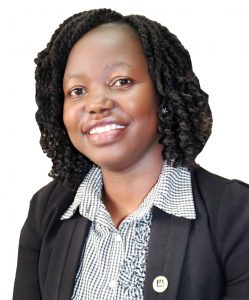
Assistant Director, Department of Research Services and the past Head, Monitoring and Evaluation Division, Parliament of Uganda,
IEAc Council member
Josephine Watera is an Assistant Director, Department of Research Services and the past Head, Monitoring and Evaluation Division, Parliament of Uganda. She holds 15 years working experience in areas of research, monitoring and evaluation and evidence-based systems.
Josephine is a PhD candidate at the University of Cape Town. A triple masters’ degree holder: Monitoring and Evaluation; Business Administration; and Social Sector Planning and Management.
She is a Board Member of International Development Evaluation Association (IDEAS), Member of the Joint Advisory Committee-Africa Centre for Evidence (ACE) and South African Centre of Evidence (SACE), University of Johannesburg and the Vice President of Uganda Evaluation Association (UEA).
She led development of guidelines for establishment of Monitoring and Evaluation Systems in African Parliaments by Twende Mbele. She led the review and development of the African Evaluation Policy by the Africa Evaluation Association (AfrEA).
She has participated as a mentor in the EvalYouth International Mentorship Program of EvalPartners. She was awarded, most promising evaluator from developing countries by the American Evaluation Association, 2015.
Josette Arevalo
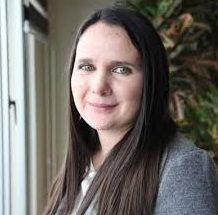
Evaluation Specialist; EvalYouth Vice-Chair; Co-founder of EvalYouth LAC and EvalYouth Ecuador
Josette Arévalo is an Economics Specialist at the Office of Evaluation and Oversight of the IDB. She has a PhD in Public Policy and Administration at the George Washington University. Josette has a bachelor’s degree in Economics and Finance, a master’s degree in Development Economics, and a master’s degree in Public Policy. Josette has vast experience in monitoring and evaluation in the public sector, academia, and international organizations, and has taught undergraduate and graduate M&E and research methods courses. She has led evaluations involving initiatives in several Latin American countries and has managerial experience from her work as the Executive Director of the National Institute of Educational Assessment of Ecuador. Josette is one of the founders of the EvalYouth Global, LAC and Ecuador networks and currently is EvalYouth’s Vice-Chair. Josette was also the recipient of the 2017 EvalPartners Young Emerging Evaluator Award for demonstrating early career leadership through her contributions to the advancement of the EvalPartners vision.
Kassem El Saddik
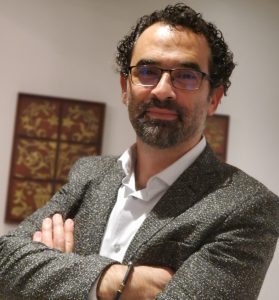
International expert in program and policy evaluation; Co-Chair of EVALSDGs Global Network
Kassem El Saddik is an international expert in program and policy evaluation with extensive experience in the public sector policy, governance and institutional development. With more than 15 years of experience, he has diligently conducted various policy and program evaluations to various complex programs and projects in fragile conflict-affected environment and led 3 complex evaluation assignments for regional UN Commissions and international implementing partners in Africa and Middle East. He coordinated various Evaplartners’ initiatives aiming at strengthening national evaluation capacities and systems in various part of the world. Besides, he has contributed to various policy discussions on the participation of actors in the regional and global environmental governance (with UNEA), coordinated the Critical Conversations on Regulatory Regimes in Canada (Carleton University), among others, engaged in academic and policy forums on evaluating the Agenda 2030 and authored dozens of policy briefs. In addition to co-founding LebEval and EvalMENA, he is co-chairing EVALSDGs Global Network.
Kataraina Pipi

Independent Evaluator
Kataraina Pipi is an independent evaluator of Ngāti Porou, Ngāti Hine descent, a mother of two and nanny of two, living in Auckland, Aotearoa/New Zealand. Her business FEM 2006 Ltd provides facilitation and training, coaching, evaluation and research services. Kataraina has a Post-Graduate Diploma in Social Sector Evaluation Research which she completed in 2009 at Massey University and a Masters in Applied Indigenous Knowledge completed in 2019-2020 through Te Wānanga o Āotearoa. Kataraina is the Co-Chair of Mā te Rae – Māori Evaluation Association and a current member of the Aotearoa New Zealand Evaluation Association. Kataraina has been working in the field of evaluation for over 15 years. Her current evaluation projects are in the early years, social services, youth justice, Maori leadership and health areas. Kataraina is a highly sought after Facilitator and Trainer who works with families, organisations, tribes and communities supporting in teambuilding, organisational development, tribal development and conflict resolution.
Lau Viliamu Iese
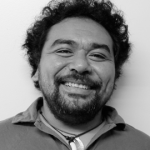
Research Fellow, Pacific Centre for Environment and Sustainable Development (PaCE-SD), The University of the South Pacific, Fiji Islands (USP), Chair for the research pillar – Pacific Soil Partnership
Lau Viliamu Iese (Vili) is a research fellow for Climate Change, Food Security and Disaster Risk Management at the Pacific Centre for Environment and Sustainable Development, at the University of the South Pacific (a Regional University in the Pacific). He coordinates three postgraduate courses on food security and climate change, disaster risk reduction for resilience and disaster response and recovery in USP. Vili has a PhD in Climate Change focusing on transforming the agriculture sector under a changing climate. Vili has conducted research and published widely in the field of risk resilience in agriculture, food systems and security, climate change loss and damage, and evaluation of adaptations in Pacific Island Countries. Vili is leading the USP research team for the 1) EU Horizon 2020 RISE project on Family Farming, Lifestyle and Health (FALAH); 2) ACIAR Conservation Agriculture and Sustainable Intensification (CASI) and Transformational Adaptation in Agriculture. He is also a co-investigator on the UKRI research project ICoFaN that develops methods to evaluate impacts of interventions to improve nutrition and diets in Small Island Developing States (SIDS). Vili is the chairperson for the research pillar of the Pacific Soil Partnership. He is an expert reviewer for the IPCC WGII in AR5 and AR6. He has conducted numerous mid-term and end of project evaluations in the Pacific Islands. Vili is a Samoan by birth, and a Samoan Chief, Tuvaluan by citizenship and currently a resident of Fiji.
Lennise Baptiste

Independent Evaluation Consultant, Representative of the Caribbean Evaluators International
Lennise Baptiste, holds a PhD in Evaluation and Measurement (focused on program evaluation) from Kent State University, Ohio, USA. She was the 2010 recipient of the Michael Scriven Dissertation Award for Outstanding Contribution to Evaluation Practice. She had more than 35 years combined professional experience in the fields of evaluation and education. She began the evaluation of projects and programs in the US in 2005 while employed at the Research and Evaluation Bureau at Kent State University, Ohio. In 2011, she returned to Trinidad and Tobago and has been working across the English-speaking Caribbean countries as an Independent Evaluation Consultant. She has been a member of the American Evaluation Association since 2006 and was the Chair of the Mixed Methods Topical Interest Group from 2008-2018. She is the Immediate Past Chair (2015-2018) of the Caribbean Evaluators International Board, and continues to work on behalf of the CEI on the South to South Evaluation Initiative which links the CEI to other Voluntary Organizations of Professional Evaluators in the Global South.
Matodzi Michelle Amisi
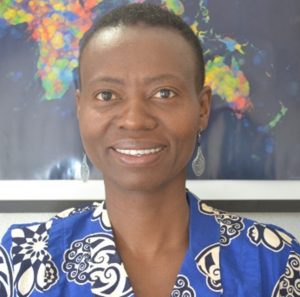
Evaluation/research consultant, IEAc Council member
Matodzi Amisi is a research/evaluation consultant with extensive experience in government/public administration in South Africa. She is a research associate at the Centre for Learning on Evaluation and Results (CLEAR-AA) Wits University working to support African governments in establishing and strengthening evaluation systems. From 2007-2013 she worked in the South African government. She was part of the team that established the National Evaluation System in South Africa. She lectured in MPHIL and Master’s in public policy at the Nelson Mandela School of Public Governance at the University of Cape Town. Matodzi has a keen interest in M&E and evidence use in the violence prevention sector, focusing on what works to prevent violence against women. Since 2016 she has been involved in the Dialogue Forum to promote collaboration between government, academia and civil society in the generation of evidence of what works to prevent violence against children. She is also a former chairperson of the South African Monitoring and Evaluation Association, a voluntary association of M&E practitioners in South Africa.
Michael A. Harnar

Assistant Professor, Interim Director of the IDPE, Executive Editor JMDE, IEAc Council member
Michael A. Harnar is Interim Director and Assistant Professor in the Interdisciplinary PhD in Evaluation Program (IDPE) at Western Michigan University, USA. He studies how humans interact with one another and with the world in which we live, especially when it comes to evaluating. He is also an evaluation consultant with more than 18 years of experience supporting complex initiatives with an emphasis on visioning, outcomes definition, and measurement. In 2011 an evaluation he co-authored for the U.S. Federal Railroad Administration won the American Evaluation Association’s Best Evaluation award. He is currently the co-principal investigator on a $6.9m National Science Foundation grant developing the evaluation capacity of the NSF Advanced Technical Education program grantees. He leads research focused on improving understanding of evaluation quality, including a systematic review of metaevaluation practice reporting, a cross sectional study of American Evaluation Association members’ evaluation quality perspectives, and an ex-post facto study of how evaluators define research on evaluation in conference proposals. His position at the intersection of disciplines connects him with a wide variety of evaluation practitioners and researchers across the globe and this network provides useful linkages for his students and his research. He is a combat veteran, having served almost 25 years in the active and reserve Navy, retiring in 2008 as a Public Affairs Officer with the rank of Lieutenant.
Mita Marra

Associate Professor of Political Economy at the University of Naples-Italy and Adjunct Professor at the George Washington University-US
Mita Marra is Associate Professor of Political Economy at the University of Naples-Italy and Adjunct Professor at the George Washington University-US. She taught within the International Program in Development Evaluation Training (IPDET) (2014-2016) and the European Study Program at Maastricht University (2006). Her research interests revolve around the evaluation of innovation and social development policies. Dr. Marra holds a MA in International Relations from the Johns Hopkins University (1998) and the PhD in Public Policy at the George Washington University (2003). She has consulted with the World Bank, the UN, the European Commission, and the FAO; and published more than 30 articles in Italian and internationally peer-reviewed journals. Her book that translates from the original Italian as “Evaluating Evaluation: Compliance, Ambiguities, and Learning in Italy’s Public Administration” won the 2018 European Court of Auditors Award. She is Editor-in-Chief of the international journal Evaluation and Program Planning and Past-President of the Italian Evaluation Association.
Monika Bartosiewicz-Niziolek
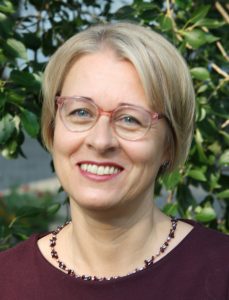
Evaluation Training Working Group Independent Evaluator, President of the Polish Evaluation Society, member of Advisory Board of NESE (Network for Evaluation Societies in Europe) College of EducationUniversity of Illinois at Urbana-Champaign Fellow, American Educational Research Association
Monika Bartosiewicz-Niziolek is a graduate of Ph.D. studies at the School for Social Research of the Institute of Philosophy and Sociology of the Polish Academy of Sciences, Postgraduate Evaluation Studies at the University of Warsaw, and Train the Trainer at the NGO Trainers’ Association. She gained her first experience in conducting evaluations in the mid-1990s by participating in international projects. As the owner of Evaluation Research Lab, and then as an independent researcher, she evaluated more than 100 projects/programs in cooperation with public administration, universities, institutions, and NGOs, working mainly in the field of education and social policy. She also has experience in commissioning and supervising evaluation, along with providing consultancy in this area. She is an author of more than 20 publications on evaluation. Monika serves as the president, training coordinator, and trainer of the Polish Evaluation Society. She developed and conducted several dozen courses and workshops on evaluation (above 1,500 hours). She serves as a mentor/tutor, a member and a certified reviewee/reviewer of the European Evaluation Society (EES), and a member of the NESE Advisory Board.
Nan Wehipeihana

Indigenous (Māori) evaluator
Nan Wehipeihana is an Indigenous (Māori) evaluator based in Aotearoa New Zealand. Her tribal affiliations are to Ngāti Tukorehe, Ngāti Raukawa, Ngāti Porou and Te Whānau-ā-Apanui. Nan established her company in 1999 and jointly established the Kinnect Group in 2007. Nan specialises in evaluation with a focus on Māori whānau (families), iwi (tribes) and ropū (organisations). Nan works across multiple sectors and facilitates dialogue and engagement that builds understanding of Māori, offering access and insight into Māori views and values for use in community, tribal, government and business contexts. Nan is an internationally leading developmental evaluator and recognised for her contribution to the advancement of Indigenous evaluation. She has twice been the recipient of an international evaluation award (2013 and 2000) – the Australasian Evaluation Society Policy and Systems Award. Nan is founding member of ANZEA (Aotearoa New Zealand Evaluation Association) and Ma te Rae Māori Evaluation Association (the first Indigenous Evaluation Association.)
Neissan Alessandro Beshrati
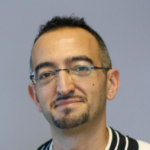
Director of Development Advisory at Pan-African Investment and Research Services (Pty) Ltd.
Neissan Beshrati joined PAIRS as Director of Development Advisory. He holds a PhD (Public Policy & Development Management) from University of Witwatersrand (South Africa). He is as a senior research associate at several prominent development think-tanks and visiting professor at a number of international universities. Neissan has extensive experience as a development consultant working with multinational corporations (EY, PWC, Deloitte) and serving as a senior technical advisor to governments, philanthropies, bi-lateral and multi-lateral donors and regional organizations. He currently sits on various UN, World Bank, AU and OECD expert groups and committees. He is a globally respected thought leader in the areas of international development cooperation, monitoring and evaluation, development finance, public-private partnerships, education policy, emerging economies and South-South cooperation.
Peter Taylor
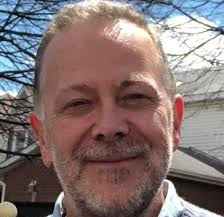
Director of Research, Institute of Development Studies, UK
Peter Taylor is Director of Research at the Institute of Development Studies, UK. He has PhD and MSc degrees in agricultural education and a BSc in animal sciences, and over 30 years’ experience in international development. He was previously Director, Strategic Development at the International Development Research Centre (IDRC), Canada, also leading IDRC’s Inclusive Economies Program Area, and the Think Tank Initiative. He has worked at IDS as Research Fellow, Head of Graduate Studies, and Leader of the Participation, Power and Social Change Team; as Education Technical Advisor with the Swiss NGO Helvetas in Vietnam; as Lecturer in Agricultural Education at the Agricultural Extension and Rural Development Department at the University of Reading, UK; and as agriculture teacher in a rural school in Botswana. He has research, teaching, advisory and writing interests in the theory and practice of organizational development and capacity strengthening, evaluation and learning, and facilitation of participatory and social change processes in a diverse range of international contexts.
Rajib Nandi

Researcher and Evaluator; Board Member, Community of Evaluators – South Asia; Co-founder and Co-leader, Evaluation Community of India
Rajib Nandi is the Associate Director at the Institute of Social Studies Trust, New Delhi – a not-for-profit research institute – with 23 years of experience in gender transformative research and evaluation. He has an M.Phil in Applied Economics; a doctoral degree in Sociology and a post-graduate certificate in Development Evaluation (IPDET). In 2018, Rajib co-edited a book entitled – Voices and Values: Politics of Feminist Evaluation, published by Zubaan Books. His areas of work and publication cover gender and development, social and solidarity economy, new social media, apart from program evaluations, and evaluative studies. Rajib has a special interest in political ecology and post-colonial history of South Asia. He was a visiting faculty at the School of Environmental Studies at the University of Delhi between 2006 and 2008. Rajib is a co-founder and co-leader of the Evaluation Community of India. He is also a member of the Governing Board, Community of Evaluators–South Asia.
Rasmi Agrawal

IEAc Council Member
Rashmi Agrawal is a PhD in Psychology and an IPDET alumni. She has more than three decades of experience as a trainer, practitioner and researcher in the field of evaluation, education, employment and other social issues. She has authored a number of books on topics of social relevance and presented several papers in national and international conferences. Dr Agrawal initiated and designed a diploma course in ‘Monitoring and Evaluation’ as course director which was launched for international participants and had approval of Government of India.
She was a Board member in IDEAS and APEA. She co-Chairs IRIPE and Consortium for M&E Education, created by APEA. She is a founder member of ‘Community of Evaluators’- a South Asian association and was in the Steering Committee. She has initiated and is a co- leader of Evaluation Community of India, an organization of professional evaluators dedicated to promote evaluation culture and capacities in India. She is associated with a number of international projects on M&E and is also a member of Evalgender+.
Rasmus Heltberg

Lead Evaluation Specialist at the Independent Evaluation Group (IEG) of the World Bank Group
Rasmus Heltberg is a Lead Evaluation Specialist at the Independent Evaluation Group (IEG) of the World Bank Group. An accomplished development economist and evaluator, Rasmus has extensive analytical, operational, and corporate experience from different parts of the World Bank. Rasmus has led many influential evaluations on World Bank strategic priorities as well as on many change initiatives such as the revamping of the annual Results and Performance Report, the reform of the post-evaluation tracking system, new approaches to partnership evaluation and outcome orientation, and has helped oversee external evaluations. He has previously worked on social protection, social development, adaptation to climate change, and disaster response; and was a member of the core team for the 2014 World Development Report on Risk and Opportunity. His research has been published in a variety of interdisciplinary development journals, including World Development, Journal of Development Studies, Environment and Development Economics, and Global Environmental Change. Rasmus holds a Ph.D. and M.Sc. in Development Economics from the University of Copenhagen and a M.Sc. in Quantitative Development Economics from the University of Warwick.
Rituu B Nanda
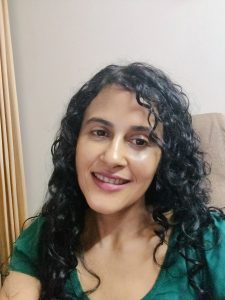
Global Fund for Children
The Constellation/Evaluation Community of India/Community ownership
in Evaluation group of Asia Evaluation Association
IEAc Council member
Shining light on others and learning from the wisdom of communities guide Rituu’s life. She is
working towards appreciation and deep listening.
Rituu uses equity lens in her work around community ownership, Monitoring and Evaluation,
participatory action research, facilitation, knowledge management, and behaviour change. Currently,
she provides support to Global Fund for children’s India-based partners, on participatory MEL. At the
Institute of Social Studies Trust, Rituu moderates gender and evaluation online community of
practice. She is a facilitator for ‘Freedom Rising’ a movement-building initiative.
Rituu is pursuing her second master’s degree in Evaluation and holds a certification in Public Health.
Romeo B. Santos
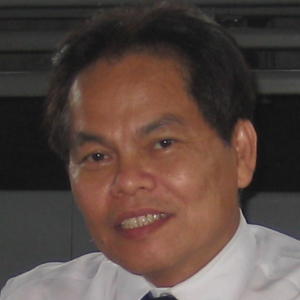
International Evaluator; former President, APEA; former Trustee, IOCE
Romeo Santos strongly supports cross and trans-disciplinary fusion of development initiatives among the public management, corporate business, academia, and plural sectors, among others. He believes that human living is in fact a cross and trans-disciplinary mixture of life pursuits. He joins the international evaluation community in advancing the cause of monitoring and evaluation (M&E) in all disciplines and sectors of society. Romeo has a PhD in Architectural Engineering with major in Project Management and Economics. This is the thing that connected him to the world of M&E. He gained more knowledge in results-based M&E after attending the World Bank-supported International Program for Development Evaluation Training (IPDET) in Carleton University, Canada in 2008. In 2009, he was a visiting professor and Fulbright scholar in the USA. Presently, he is a senior professor in the University of the Philippines Diliman.
Rosetti Nabbumba Nayenga
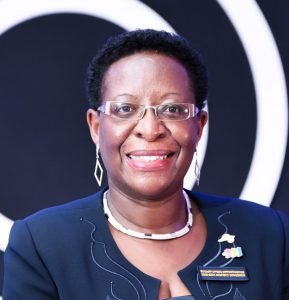
President, African Evaluation Association (AFREA)
Rosetti Nabbumba Nayenga is an experienced passionate monitoring and evaluation practitioner having worked for the Government of Uganda for more than 20 years in the Ministry of Finance, Planning and Economic Development. Currently, she serves as the Deputy Head of the Budget Monitoring and Accountability Unit (BMAU), having previously served as a Policy Analyst in the Poverty Monitoring and Analysis Unit (PMAU). She holds a Master of Science Agricultural Economics and a Bachelor of Science Agriculture from Makerere University; and certification in monitoring and evaluation. Rosetti is: President African Evaluation Association (AFREA); Member of Global UN Evaluation Reference Group on COVID 19; Member of the Advisory Council for the Centre for Learning on Evaluation and Results for Anglophone Countries at WITS University South Africa; Chairperson, Foundation for Human Rights Initiative (FHRI) Uganda; Board Member Bank of India Uganda Limited. She lives happily with family in Mukono District Uganda. She has expertise in editorial services, training, and budget planning and monitoring.
Safyatou Diallo
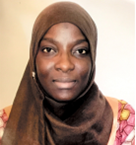
Former Deputy Secretary General and Co-coordinator of the Emerging Evaluators Thematic Group, SenEval (Senegalese Evaluation Association)
Safyatou Diallo is a Young Senegalese evaluator, currently working as Monitoring and Evaluation specialist in an Agriculture project. Before this position, she was a Monitoring and Evaluation Manager for almost 5 years in USAID’s Monitoring and Evaluation project. She worked in several topics as well as education, health, governance and peace, agriculture, etc. Passionate about evaluation, she is also a volunteer and active member of the Senegalese Evaluation Association (SenEval). She was a former Deputy Secretary General and Co-Coordinator of the SenEval’s Emerging Evaluator thematic group.
Sanjeev Sridharan

Country Lead, Learning Systems and Systems Evaluation at the India Country Office of the Bill and Melinda Gates Foundation
Sanjeev Sridharan is Country Lead, Learning Systems and Systems Evaluation at the India Country Office of the Bill and Melinda Gates Foundation. Prior to this position, Sanjeev was Director of the Evaluation Centre for Complex Health Interventions at Li Ka Shing Knowledge Institute at St. Michaels Hospital (Torontoevaluation.ca) and Associate Professor at the Department of Health Policy, Management and Evaluation at the University of Toronto. Prior to his position at Toronto, he was the Head of the Evaluation Program and Senior Research Fellow at the Research Unit in Health, Behaviour and Change at the University of Edinburgh. Sanjeev has led evaluation capacity building projects in China, Chile, Scotland and Sri Lanka. He is a former associate editor of the American Journal of Evaluation and is on the boards of the Canadian Journal of Program Evaluation, New Directions for Evaluation and the Journal of Evaluation and Program Planning. Sanjeev has a fondness for playing and watching cricket (the game) – his move to Delhi has helped nurture this interest.
Stewart I. Donaldson

Distinguished Professor and Executive Director of the Claremont Evaluation Center (CEC) and The Evaluators’ Institute (TEI) at Claremont Graduate University
Stewart I. Donaldson, PhD, is Distinguished University Professor and Executive Director of the Claremont Evaluation Center (CEC) and The Evaluators’ Institute (TEI) at Claremont Graduate University. He is deeply committed to improving lives through research and evaluation; evaluation education, training and capacity building; research on evaluation; and program design and re-design. He has taught and mentored hundreds evaluation graduate students and professional evaluators, and has published numerous articles, chapters, and books on evaluation. Professor Donaldson is series editor of the Evaluation and Society Book Series, and is Associate Editor of the American Journal Evaluation. He has received a wide range of international, national, and regional career achievement awards, and served as President of the American Evaluation Association (AEA) during the International Year of Evaluation in 2015. The theme of the AEA Conference he developed in 2015 was “Exemplary Evaluations in a Multicultural World: Learning from Evaluation’s Successes Across the Globe.”
Taruna Gupta

Secretary-General of the European Evaluation Society
(Former Secretariat for the EvalYouth Global Network, Advisory council for Blue Marble Evaluation), IEAc Council member
Taruna Gupta is a Kenyan national and an independent evaluator with an interest in people and the planet. She is an advocate for including the youth’s voice in decision-making that influences their lives. She holds an MSc in Global Health and Development from University College London and is currently studying for her Bachelor of Laws.
Taruna worked as a global health consultant in London, where she supported successful contracting, management and implementation of large multi-donor programmes. She transitioned to conducting evaluations as a result of her passion for doing development differently and maximising results and learning in the aid sector. Her research and evaluation work are mainly focused on the environment, and bringing about systems-level change.
She is the Secretary-General of the European Evaluation Society, the former Secretariat for the EvalYouth Global Network and sits on the advisory council for Blue Marble Evaluation.
